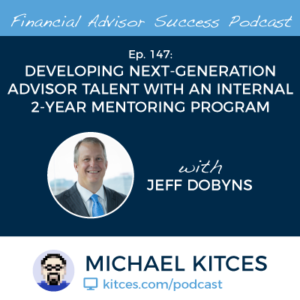Enjoy the current installment of "weekend reading for financial planners" – this week's edition kicks off with the announcement that Charles Schwab will allow (free) fractional share trading on their platform, which not only fires a shot back at upstart stock trading platforms like Robinhood that also allow fractional shares, but raises the question of whether Schwab is positioning itself to compete against mutual funds (and ETFs) more directly by facilitating Indexing 2.0 solutions that allow investors to buy the stocks underlying an index fund directly in the exact (fractional) amounts and avoid the cost of the mutual fund or ETF wrapper altogether.
From there, we have several articles on spending advice for clients, from tips on how to help clients who are spending "like mad", a study finding that it may be easier to help clients actually change their savings behavior by engaging their emotionality rather than just trying to make them behave more rationally, understanding the limits of trying to be ever more frugal (or balancing out financial frugality with time frugality), and whether and to what extent advisors have a "moral obligation" to help clients that are on an unsustainable spending path towards portfolio depletion.
We also have a few articles on the trends of advisory firm mergers and acquisitions, including a look at whether the typical deals for RIAs are getting bigger or smaller (hint: it's both bigger over $5B, and smaller under $500M, that is seeing an uptick in deal activity), what to consider when trying to value your own advisory firm, whether advisory firms should be concerned that publicly traded RIA consolidators like FOCS and AMG are lagging the general stock market, and what prospective sellers should be thinking about if they're considering whether to sell their firms (and don't want to botch the deal in the process).
We wrap up with three interesting articles, all around the theme of how shifting generational preferences and experiences are changing consumer behavior: the first looks at the rise of 'group trips', which are going from large guided tour groups (that leave group members unduly beholden to one another) into premium small-group experiences that have become particularly popular with affluent individuals in their 50s and 60s; the second looks at overall Consumer Expenditure Survey data on how Millennial spending compares with Baby Boomers (and Gen X) in their mid-20s to mid-30s, finding that, overall, Millennials earn more and actually don't have to spend as much on 'luxuries' in clothing and entertainment... or can't afford to, because of their substantially higher student loan debt overhang that averages nearly 10X (even after adjusting for inflation) that of the Boomer generation; and the last looks at how Millennials and the subsequent Gen Z now entering the marketplace, are beginning to disrupt the nature of what it means to work in an office, as work changes from a 'place' you go, to a 'thing' you do (from wherever it happens to be convenient to do that work, which may or may not include a lot of physical office time).
Enjoy the 'light' reading!






 Welcome back to the 147th episode of Financial Advisor Success Podcast!
Welcome back to the 147th episode of Financial Advisor Success Podcast!


